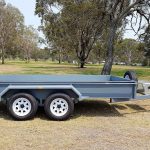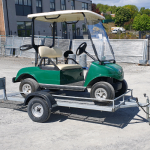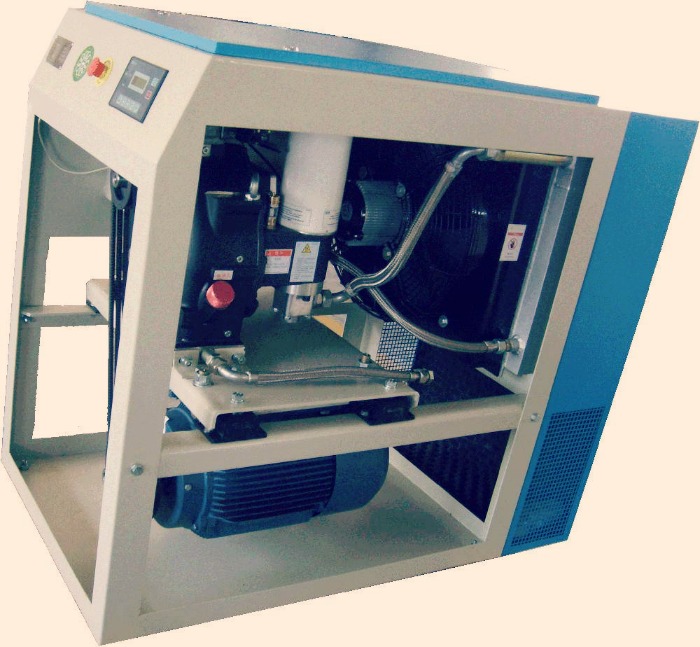When the first horse trailer made entirely out of aluminium hit the market in the 70s, it offered huge advantages over steel trailers and quickly became the preferred manufacturing material. Not only does aluminium resist corrosion and rust, but it’s also lightweight, making it easier to pull. Improved gas mileage when hauling an aluminium custom trailer only added to its popularity, even though it’s more expensive than its steel counterpart.
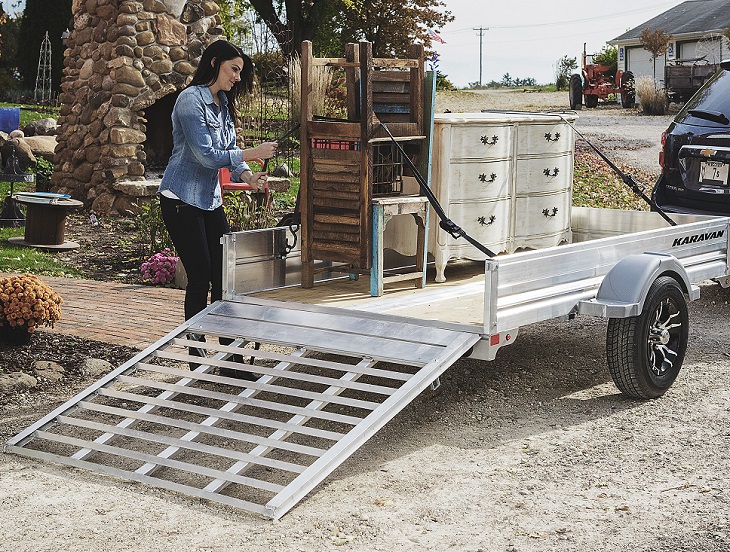
However, steel manufacturers argue that aluminium trailers aren’t as strong, which leaves many buyers who are looking for a trailer with a hard choice. Do you pay for a familiar steel trailer that’s supposedly stronger and save money? Or do you go for an aluminium trailer that’s more durable and lighter in weight? Let’s discuss the advantages and disadvantages of both steel and aluminium trailers in detail.
Which Metal Is Stronger?
This is the big question most trailer buyers look the answer for before making a purchase. Steel has the reputation of being one of the strongest common alloys, whereas aluminium is known for its use as pop or foil can material. However, the aluminium used in the manufacturing of trailers is an alloy, just like steel is an alloy of iron. The aluminium alloy has a similar yield strength as steel, as it contains at least 95% of aluminium, the other 5% being a mix of titanium, copper, zinc and copper. Other metals can also be added to refine the alloy’s properties even further.
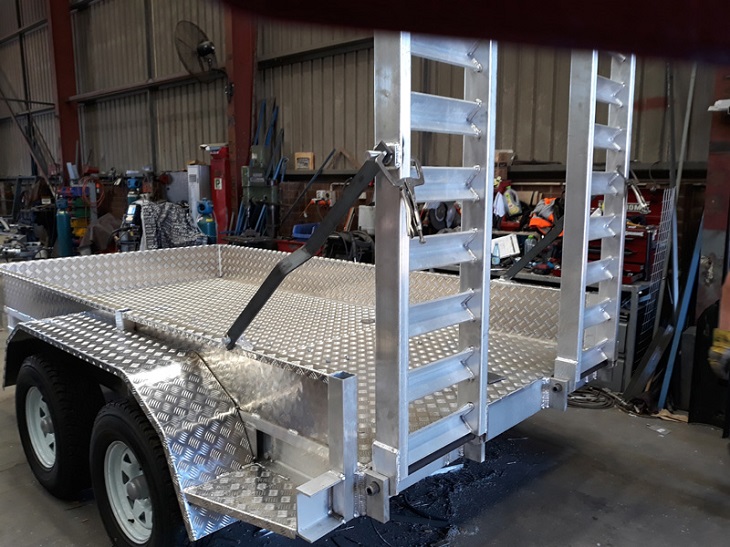
Maintenance Requirements
Both steel and aluminium-made custom trailer models require upkeep. The biggest problem with aluminium trailers is lubricating the cam latches and hinges. You’ll want to wash it every now and then, including an acid bath every few years to renew its exterior. steel trainers, on the other hand, need to be examined frequently to prevent rust. Any scratches need to be touched up, otherwise, the steel will oxidise.
However, there are galvanised steel trailers that will make it so you don’t have to inspect the trailer as frequently, but you’ll still want to make sure the riveted and welded areas are properly finished after repair. The constant need to maintain the galvanic and paint coat of steel make steel repairs costlier, simply because the zinc layer needs to be stripped off to perform any repair. After repairs are done, the zinc layer needs to be applied again, and the repaired area needs a new coat of paint as well.
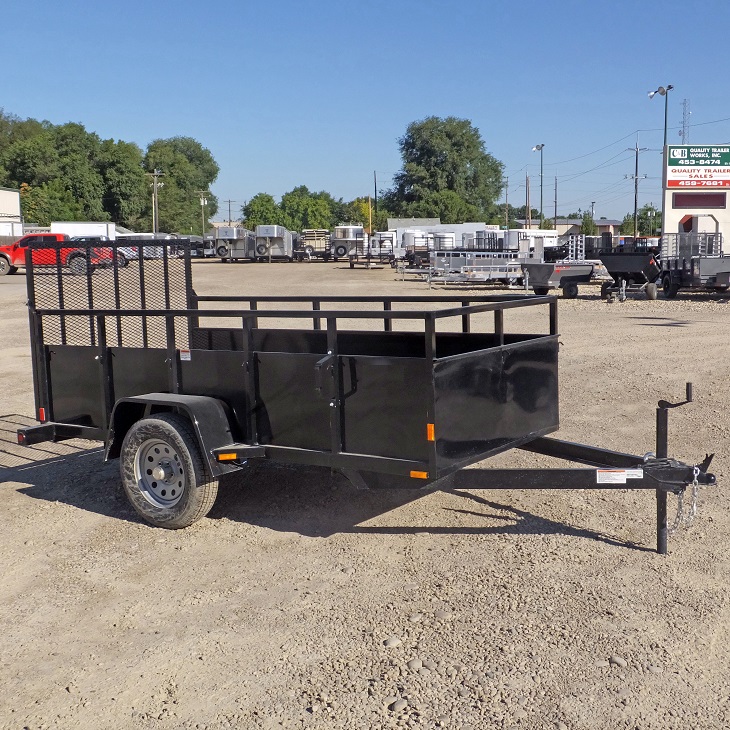
Warranty and Resale
Since steel rusts, reselling your steel trailer can be a problem. Steel trailers that are only a few years old can have patches of rust that are difficult to clean or cover. Older steel trailers can be badly rusted, posing a safety hazard since the rust can compromise load-bearing parts of the trailer.
Aluminium trailers, on the other hand, can be kept in good condition for over a decade with just proper, routine maintenance. The look of aluminium trailers can be restored with an acid bath that will render the trailer pristine and lustrous in just a few minutes. These are the two main reasons why aluminium trailers hold a higher resale price than their steel counterparts. Additionally, aluminium trailers have longer warranties, which makes them a low-risk, long-term investment.
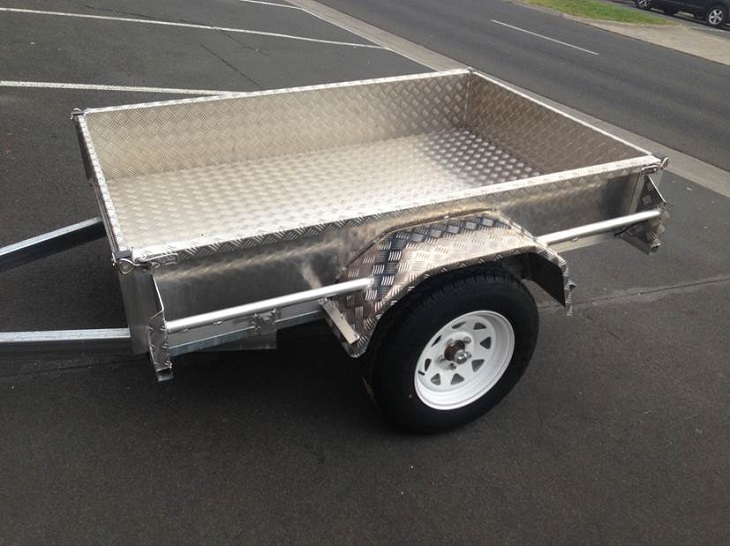
On-Road Performance
So, aluminium trailers require less maintenance, feature better corrosion and rust resistance and are more durable overall. All of that sounds great, but how do they actually compare on the road? People who have owned both types of trailers say that they get smoother towing with aluminium trailers, even when it’s loaded versus when they’re towing an empty steel trailer. The lighter weight of aluminium trailers also means you get a higher payload capacity, allowing you to load more into the trailer before you reach the maximum amount of capacity your vehicle can tow. And as aforementioned, you get better gas mileage with an aluminium trailer.
Conclusion
At the end of the day, aluminium is the obvious choice for manufacturing trailers. While steel trailers are great in a wide range of applications, aluminium almost always does a better job – they last longer, are rust- and corrosion-resistant (important in coastal areas), and are lighter in weight, allowing you to save money on gas in the long run. The only downside is that they’re more expensive to buy.
However, once you get the trailer, you can rest assured you’ll get plenty of years of faithful service. You can get custom made trailers that are made to your wants and needs, or you can choose from a wide range of purpose-specific trailers. All you have to do is look online and you’ll find a large range of trailers, and you can compare different models and prices. Some vendors even let you rent the trailer before you buy it so you can test it out on the road.

